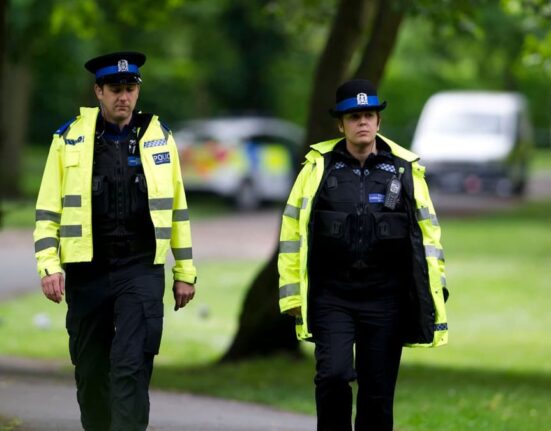In a quaint community space in Clarks Summit, Pennsylvania, a group of individuals gathers twice a month. The room is adorned with an under-the-sea theme, creating a whimsical ambiance that sparks joy and nostalgia. Balloons fashioned as jellyfish float among clear bubbles mimicking ocean waves.
Rob Kennedy, who was diagnosed with early-onset Alzheimer’s disease in his late 50s, cherishes these moments at the memory cafe. As he engages in activities like coloring underwater-themed worksheets and participating in trivia games, a sense of camaraderie fills the air. Kennedy reflects on the significance of these gatherings,
“You know, we all try to make it fun.”
The concept of memory cafes has been gaining traction across the United States as more than 600 such venues now offer solace to those grappling with cognitive impairment and their caregivers. These cafes provide a low-cost yet invaluable platform for individuals to socialize and find respite from the challenges posed by dementia.
Beth Soltzberg, a social worker specializing in Alzheimer’s care, emphasizes the unique aspect of memory cafes that sets them apart from other support programs – they focus on fostering connections through shared experiences rather than offering formal therapies. This emphasis on companionship is particularly crucial for both patients and caregivers who often grapple with isolation post-diagnosis.
Jason Karlawish, a geriatrics professor at the University of Pennsylvania’s Perelman School of Medicine, underscores how memory cafes can strengthen relationships between caregivers and patients by providing avenues for shared enjoyment amidst the difficulties posed by dementia.
As populations age and the number of available family caregivers dwindles over time according to reports from AARP’s Public Policy Institute , there is an impending surge in dementia cases projected for the coming decades . In light of potential cuts to federal health funding initiated by recent administrations , memory cafes emerge as cost-effective sanctuaries that could play a pivotal role in supporting those affected by memory loss.
Susan McFadden , co-founder of Fox Valley Memory Project in Wisconsin notes how grassroots efforts have propelled the state’s success in establishing over 100 vibrant memory cafes . These initiatives underscore not just financial viability but also highlight the importance of community-driven support networks that cater to diverse needs arising from cognitive impairments like dementia.
McFadden’s journey into advocating for memory cafes began during her research trips to UK-based venues where she witnessed firsthand their transformative impact. Her subsequent endeavors led her to pioneer similar initiatives back home in Wisconsin through collaborations with organizations like Dementia Friendly America .
Indeed, setting up these havens does not require monumental resources but rather hinges on community involvement and goodwill . By offering simple yet effective platforms for interaction and engagement, memory cafes continue to serve as beacons of hope amidst challenging times for those navigating life with dementia.
Through shared laughter and heartfelt conversations at these welcoming establishments around the country , individuals find solace amid uncertainty while forging lasting bonds that transcend mere acquaintanceship – they become an extended family where cherished memories are created anew each day.









Leave feedback about this